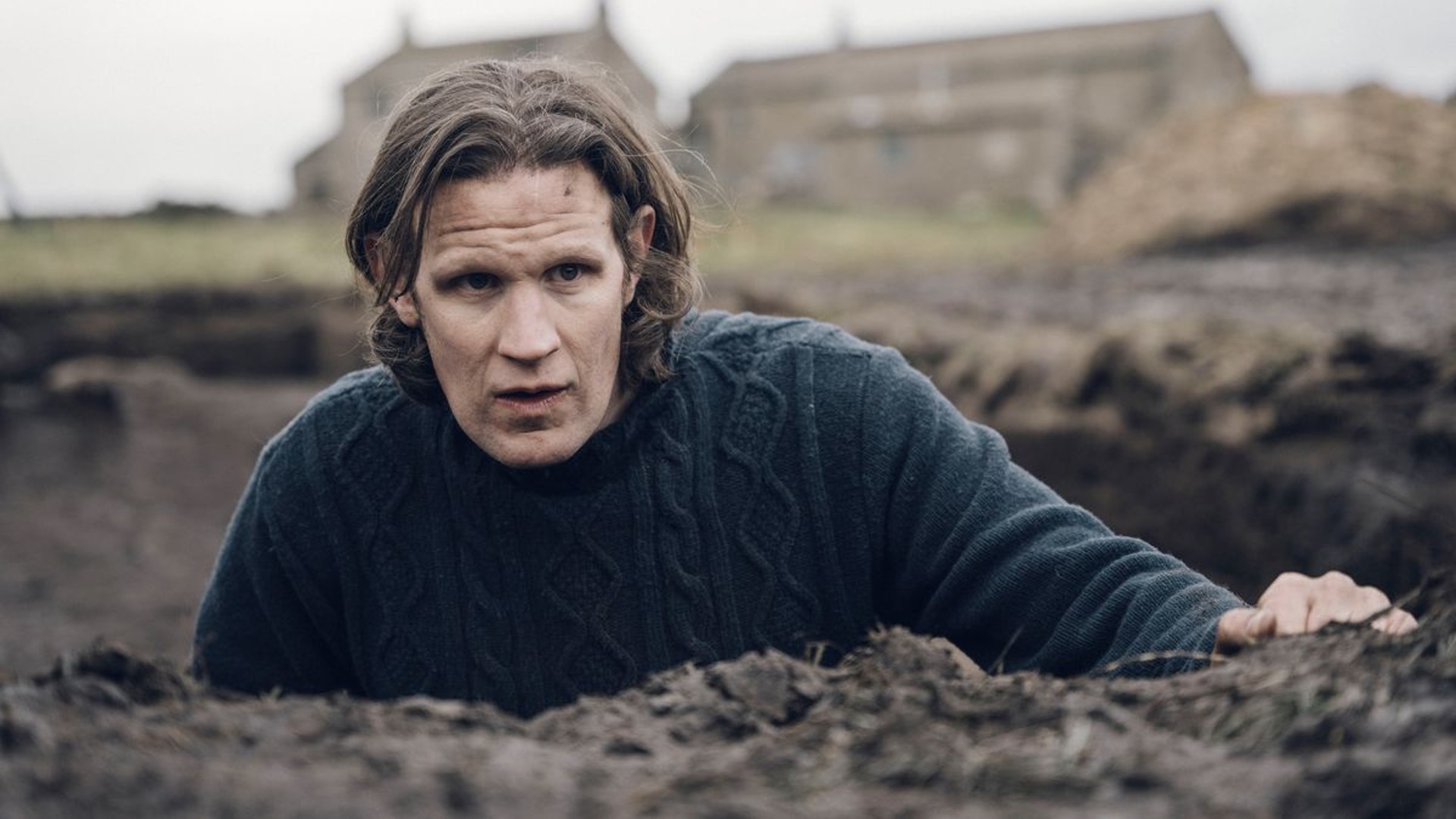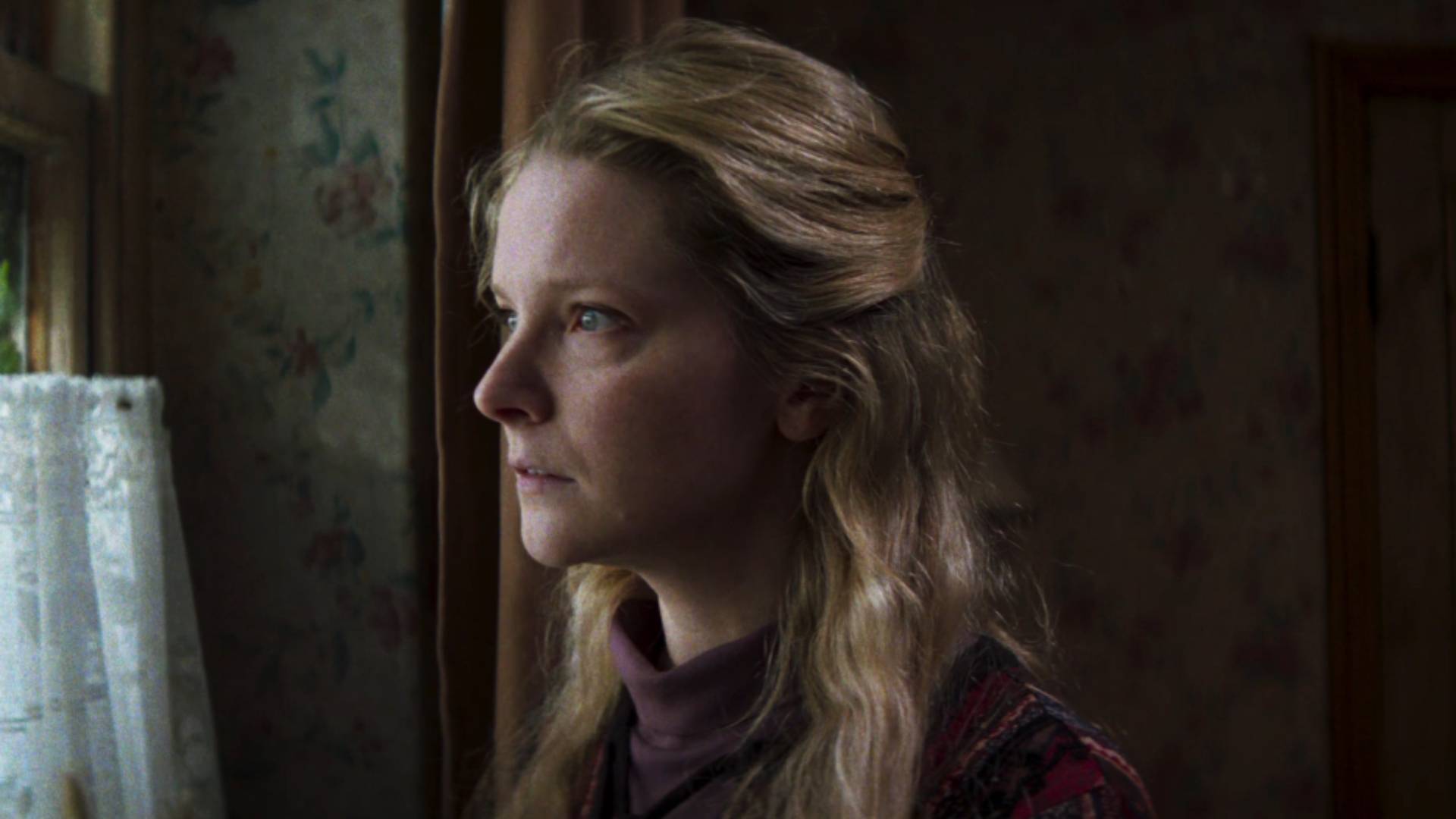GamesRadar+ Verdict
A chilling and unnerving retro spine-tingler, with an animatronic hare so lifelike it deserves its own credit. 'Rupert Leveret', anyone?
Why you can trust GamesRadar+
"I don’t really know what’s happening anymore" cries an anguished Matt Smith an hour or so into Starve Acre. And indeed, such is the fug of indistinct menace and metaphysical mystery in Daniel Kokotajlo’s follow-up to 2017’s Apostasy that your immediate response to his woeful declaration may be to nod instinctively in agreement.
Like the 2019 novel by Andrew Michael Hurley from which it evolved though, Starve Acre is not a work one has to fully comprehend in order to be seduced. It is more of a mood piece, in truth: one that transports the viewer to a muddy vision of '70s Yorkshire in which nature itself seems inexplicably, implacably opposed to the very presence of archaeologist Richard (Smith), his wife Juliette (Morfydd Clark), and their troubled young son Owen (Arthur Shaw).
Having moved from Leeds to take up residence in the titular farmhouse Richard inherited from his estranged father, the Willoughbys are hopeful that their new surroundings will be beneficial to their introspective and asthmatic lad. It takes a mere five minutes for them to be disabused of that fallacy, as a ghastly act of violence recalls 1977’s Equus in its ferocity and unfathomability. An even more bewildering tragedy follows, driving a wedge between Richard and ‘Jules’ that he attempts to fill by literally digging into their home’s links to local myth and folklore. Juliette, meanwhile, finds a comfort of her own in a spiritualist (Melanie Kilburn), inadvertently stirring a malevolent entity that has been wisely kept buried for centuries.
Tapping into the same rich vein of British folk horror the likes of 2015’s The Witch and 2022’s Enys Men mined so productively, Starve Acre roots its dread in a gloomy past that is mundane, real and tangible. A radio news bulletin conveys bleak warnings of impending industrial action, while the buckled headset Owen is made to suffer as he undergoes an EEG has the vintage authenticity of a medieval torture device.
The chunky patterned knitwear Juliette and her interfering sibling Harrie (Erin Richards) favor has the same aura of musty specificity, something director of photography Adam Scarth augments with visuals that look like they have been dunked in a colour-inhibiting taupe. The upshot of this is that when strange things happen they seem to emerge elementally from the ether, like shadows granted corporeal form or waking dreams made palpable.

Take Starve Acre’s boldest conceit, for instance: a skeletal hare that, having been lifted from the soil and secreted in a box, miraculously starts sprouting follicles, veins, and musculature. This is clearly no ordinary wabbit, and its incremental resurrection, facilitated masterfully by effects outfit Millennium FX, rightly fills the viewer with a fearful foreboding. Yet it’s handled so matter-of-factly, in such a calm and sober fashion, that it feels like an almost logical happenstance in the weird world Kokotajlo has created. It’s certainly the sort of thing Smith’s Doctor would have taken in his stride, the star’s familiarity with fantasy making him a canny choice for a protagonist forced to grapple with the unexplainable.
Clark has the more arduous task, encumbered as Juliette is with a crushing albatross of grief following a crippling bereavement. Over the course of the film, though, she undergoes her own kind of rebirth, albeit one that comes with a zeal not that dissimilar from the religious devotion of Apostasy’s Jehovah’s Witnesses. Having that film’s Robert Emms play Richard’s academic friend provides additional connective tissue with Kokotajlo’s debut. A brief excerpt of a youthful Donald Sutherland in 1964’s Hamlet at Elsinore, meanwhile, can’t help but summon memories of Don’t Look Now, as does a later interlude that sees Smith and Clark reconnecting through a bout of passionate, wound-healing lovemaking.
Bringing all the latest movie news, features, and reviews to your inbox
Kokotajlo has been upfront about his many inspirations, from Quatermass creator Nigel Kneale to ghost story maestro M.R. James. And there is indeed a sense that Starve Acre feels beholden to others, to the extent perhaps of it lacking an individual identity and texture. A scene featuring Harrie in a phone booth is only one of numerous nods to Rosemary’s Baby, while films like Lamb and Hatching have made the inception of freakish critters something of a horror staple of late. There is reason, then, to celebrate composer Matthew Herbert for an eerie wind-based score that sounds like nothing heard on this planet, not to mention a séance scene mercifully bereft of the campy excesses we witnessed in last year’s A Haunting in Venice.
"You’ve hit the jackpot!" exults Emms’ character Steven after Richard unearths the stump of an ancient oak tree with huge pagan significance. Audiences may feel similar elation at Kokotajlo’s ongoing maturation into one of our most composed and rigorous storytellers.
Starve Acre is released in UK cinemas on September 6.
For more chillers coming your way, check out our guide to upcoming horror movies.
Neil Smith is a freelance film critic who has written for several publications, including Total Film. His bylines can be found at the BBC, Film 4 Independent, Uncut Magazine, SFX, Heat Magazine, Popcorn, and more.



